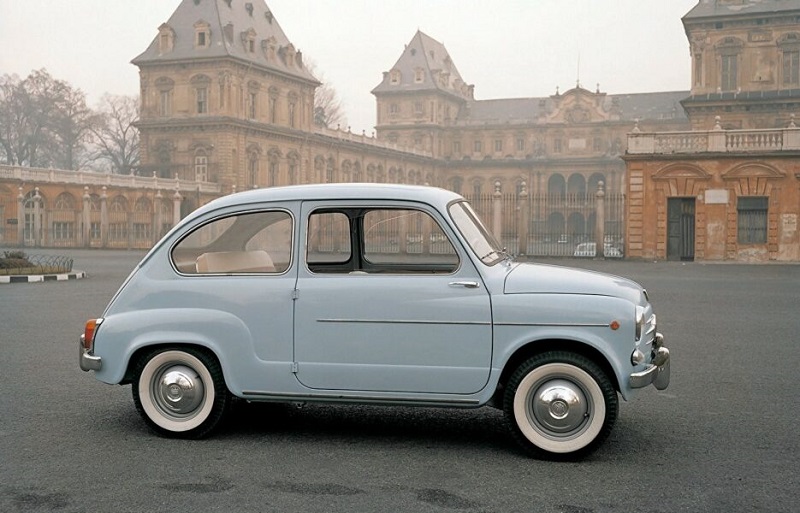Cars have seamlessly woven into the fabric of modern society, becoming more than just modes of transportation. They’ve evolved to symbolize freedom, status, innovation, and personal identity. In this article, we will explore why are cars important in culture, delving into their historical significance, influence on subcultures, portrayal in media, and much more.
Since their inception, cars have played an integral role in shaping cultures worldwide. They’ve revolutionized the way people live, work, and interact. The impact of cars on culture is undeniable, as they’ve transformed the physical landscape and the social and emotional aspects of our lives.
Historical Evolution of Cars
The automotive industry has come a long way since the days of horseless carriages. The introduction of the Model T by Henry Ford marked a pivotal moment in history, making automobiles accessible to the masses and redefining mobility. Throughout the 20th century, cars became symbols of progress, signifying advancements in technology and innovation. Today, keeping up with automotive news is essential to stay informed about the latest developments and trends in this rapidly evolving industry.
Cars as Status Symbols
Luxury brands have played a significant role in defining social status through cars. Owning a prestigious car brand can signify affluence and success. Additionally, classic cars have become a means of reflecting personal identity, allowing individuals to express their unique tastes and preferences. Celebrities, in particular, have influenced the perception of cars as statements of success.
Cars and Cultural Icons
Hollywood has perpetuated a deep love affair between automobiles and the silver screen. Iconic movies have featured cars as central elements, from James Bond’s sophisticated rides to the iconic Batmobile. Beyond movies, cars have also been intertwined with music, providing the soundtrack for memorable road trips and journeys of self-discovery.
Cars and Subcultures
Customization is an art form that has found its canvas on cars. People modify their vehicles to express their individuality and passions. Car clubs have fostered communities where enthusiasts share their love for specific car models or modifications. Street racing and underground car culture further exemplify how cars have become self-expression and community-bonding vehicles.
Cars and Advertising
The automotive industry’s advertising strategies have significantly influenced how cars are perceived. Emotional connections are often established through car commercials, associating vehicles with feelings of adventure, family, and freedom. However, gender stereotypes in car advertising have also been a subject of critique, revealing the complexities of representation in the industry.
Environmental Impact of Cars
With the rise of environmental awareness, the automotive industry has shifted paradigm. Electric and hybrid cars have emerged as eco-friendly alternatives, challenging conventional perceptions of cars as polluting machines. The balance between convenience and sustainability is crucial as we redefine car culture to align with renewable energy sources.
Cars and Urbanization
Cars have played a substantial role in shaping urban landscapes. The convenience of personal transportation comes with challenges, including traffic congestion and environmental concerns. The future holds promises of autonomous cars, offering potential solutions to urban transportation issues while also raising questions about the future of car ownership and city planning.
Nostalgia and Vintage Car Culture
Nostalgia has a powerful influence on car culture. Collecting and preserving vintage cars allow us to connect with the past and celebrate automotive history. Vintage car shows provide a platform for enthusiasts to share their passion, and the nostalgia associated with classic cars often influences contemporary car design.
Cars in Literature and Art
Cars are more than machines; they hold symbolic meanings in literature and art. In literature, they represent freedom, escape, and adventure. Automotive art captures the essence of motion and speed, while cars themselves serve as muses, inspiring creativity across various artistic mediums.
Technological Advancements in Cars
Modern cars have evolved into entertainment hubs with advanced infotainment systems. Artificial intelligence and connectivity have transformed the driving experience, enabling features like voice commands and real-time navigation. Safety innovations have also taken center stage, redefining car culture’s priorities with collision avoidance and autonomous emergency braking features.
Cars and Family Culture
Cars have been integral to family culture, providing opportunities for memorable road trips and shared experiences. Car design has adapted to accommodate child safety, highlighting the evolving relationship between cars and family life. Cars serve as gathering spaces, fostering connections and memories among loved ones.
Global Influence of Cars
Car preferences vary across cultures, reflecting unique societal values and preferences. Cars have also become symbols of national pride, representing technological achievements and economic progress. However, globalization has led to homogenization in car culture, blurring the lines between regional preferences.
Economic Impact of the Automotive Industry
The automotive industry has far-reaching economic implications. It drives job creation, stimulates economic growth, and fuels global trade through intricate supply chains. The luxury car market, in particular, contributes to high-end economies, with luxury cars becoming status symbols of opulence and success.
Cars and Sports
Cars have found a place in the world of sports, bringing together enthusiasts and athletes alike. NASCAR offers high-speed thrills, while rally racing pushes the limits on diverse terrains. Engineering for performance has turned cars into athletes, with every design choice aimed at achieving optimal speed and agility.
Challenges and Controversies in Car Culture
Car culture is not without its challenges and controversies. The debate between fuel efficiency and performance highlights the complexity of balancing environmental concerns with enthusiasts’ desires. Traffic accidents and road safety measures emphasize the need for responsible driving practices, and equitable access to cars addresses socioeconomic disparities in mobility.
Cars and Music
Music and cars share an inseparable bond. Cruising tunes form the backdrop of unforgettable road trips, and car audio systems are designed to provide the ultimate sonic experience. Music videos featuring cars create a fusion of visual and auditory arts, enhancing the emotional connection between music and driving.
Cultural Shifts in Car Ownership
The rise of ride-sharing and car-sharing services marks a shift in car ownership paradigms. The concept of car ownership is evolving in the age of minimalism, where access to transportation is prioritized over ownership. This shift has implications for car manufacturers and dealerships, requiring them to adapt to changing consumer behaviors.
Future Speculations
The future of cars holds exciting possibilities. Autonomous cars are on the horizon, promising safer and more efficient transportation. Sustainability goals are reshaping car culture, pushing for greener alternatives and reimagining our relationship with vehicles. As cultural attitudes evolve, cars will likely continue to influence and be influenced by the societies they’re a part of.
Conclusion
Cars have journeyed far beyond their functional beginnings to become cultural touchstones. They reflect our values, aspirations, and identities. The multifaceted role of cars in shaping culture is a testament to their enduring impact on society. From vintage classics to futuristic marvels, cars continue to drive us physically and culturally forward.
FAQs
Q1: Are classic cars still popular in today’s modern world?
A1: Absolutely! Classic cars hold a special place in the hearts of enthusiasts, often serving as nostalgic reminders of the past.
Q2: How have electric cars changed the automotive landscape?
A2: Electric cars have ushered in a new era of environmentally conscious transportation, challenging the traditional notions of car culture.
Q3: What role do cars play in art and literature?
A3: Cars have symbolic significance in art and literature, representing themes of freedom, adventure, and the human experience.
Q4: How are cars shaping urbanization?
A4: Cars have shaped urban landscapes, influencing city planning, traffic patterns, and discussions about sustainable transportation solutions.
Q5: What does the future hold for autonomous cars?
A5: The future of autonomous cars is promising, with potential benefits such as reduced accidents, efficient traffic flow, and enhanced mobility for individuals with disabilities.







